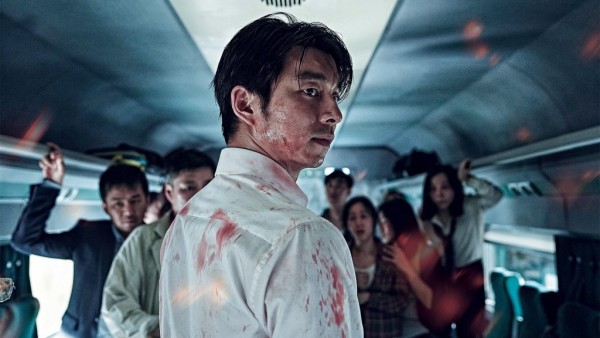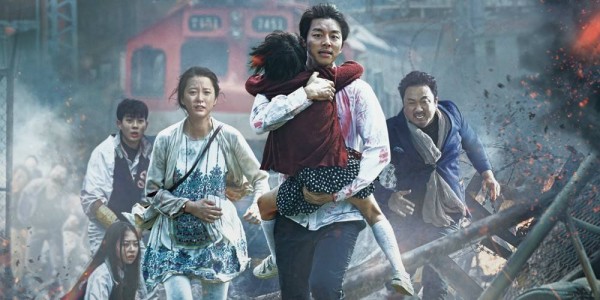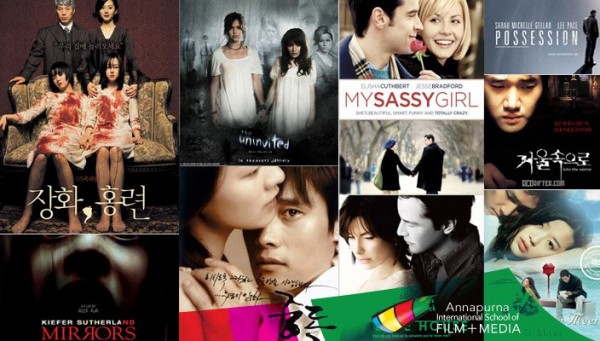- 19:25:03
- 2026-01-08 (SEOUL)
CATEGORY
- K-ENTERTAINMENT
- TV-MOVIES
Video Review: Train to Busan is one zombie train ride you don’t want to miss
- Name : korea
- Date : 2016-08-10 10:03:08
A zombie outbreak on a KTX train leaves Gong Yoo and company no choice but to fight the infected in Train to Busan.
The video review
In this video, we’ll go over things like:
- The various cast of characters in the film
- Why the special effects and music team deserve mad props
- How the zombies act like
- How nobody calls the zombies ‘zombies’ in the film
- Why this zombie movie is more realistic than others
- The big flaws in the movie (there aren’t too many, don’t worry)
- … and more
It was just the beginning
Who knew a routine, everyday train ride from Seoul to Busan would turn into a life-or-death struggle?
When an infected human-turned-zombie jumps onto the departing KTX train at the last zombie, you knew things would to get real crappy fast. Only mere seconds later, it did and pandemonium soon breaks out on the train.
A tale of the two 2016 zombie films
Before talking about the two celebrated 2016 zombie films, which did come first in the timeline?
That would be Seoul Station.
Seoul Station came out earlier in 2016 and took place a day before the sequel, Train to Busan. Seoul Station goes a bit into the zombie outbreak cause and how the all started in the capital city.
Train to Busan, on the other hand, takes place during the chaos of the zombie outbreak. Just a mere 24 hours after the events in the prequel, the news are reporting on the infected popping out of nowhere. Helicopters, police cars, and the military are heard around the city at an alarming rate.
One interesting take that Director Yeon Sang-ho did was the format of the two films. Yeon shotSeoul Station as an animated movie, while Train to Busan was shot as live action.
Train to Busan is already a hit in Korea

The cast thanks movie goers for buying over 8 million tickets.
Zombie movies and TV shows are a big hit in Korea.
For years, Koreans have religiously watched the hit US TV show, AMC’s The Walking Dead. So it’s no surprise when a homemade Korean film, Train to Busan, came out with Gong Yoo as the lead, it would sell.
But not even movie producers thought it would be this big so fast.
As of July 31st, the zombie infested film has already sold over 8 million tickets. The Train to Busancast soon thanked their fans for seeing the movie. The massive ticket sales already makes it one of the highest grossing films in 2016. This train shows no signs of slowing down anytime soon.
The ever-expanding Hallyu Wave
Between the Korean pop songs, cosmetics, Kdramas, and now Korean movies, the government and the country’s banks see Korean pop culture as a sure-fire investment.
The country’s top officials know that not only does pop culture promote the country’s Hallyu Wave more, but also is profitable.
In fact, one of the largest banks in Korea, the Industrial Bank of Korea (IBK) has poured money into the Liam Neeson and Lee Jung-jae spy-war film, Operation Chromite, as well as Train to Busan. This explains when watching recent movies in Korean movie theaters, IBK ads, logo, and savings account offers, pop up often in commercials leading up to the movie.
Already a remake in the works?
Credits: aisfm
It looks to be that way.
It’s been reported that both Sony Pictures and 20th Century Fox are trying to port the Korean zombie hit into a Hollywood remake.
Korean cinema being remade on US shores isn’t uncommon. Previous Korean movies from the 2000s, such as Oldboy, Il Mare, My Sassy Girl, and A Tale of Two Sisters were spun into US remakes.
If zombie films are so big in Korea, why doesn’t Korea make more of them
This extends even to sci-fi and monster films as well.
The widely-accepted Korean monster movie is The Host back in 2006. Directed by Joon Bong-ho, the film was praised and sold over 13 million tickets that year.
Yet, ever since The Host, Korean directors had a harder time replicating the 2006 hit. Many Korean directors are skilled with shooting and directing the horror, rom-coms, romance, war, and thriller genres.
Zombie films though? Not so much.
When I asked Koreans this very same question, they felt they couldn’t take Korean zombie movies seriously. Many echoed this statement and said Korea’s attempt at a zombie movie would be a cheap knock off of The Walking Dead.
Koreans believe that all the good sci-fi, zombie, and monster movie films largely came from Hollywood. In fact, one of the highest selling movies in Korea is the 2009 James Cameron hit,Avatar.
Thus, faced with this pressure of living up to US standards, many Korean directors decided not to delve into this genre.




